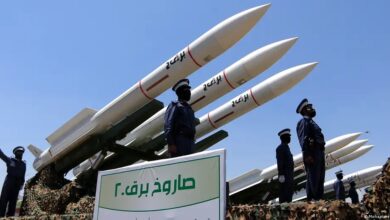
The peace talks between the Afghan government and the Taliban is the perfect opportunity for the latter to renounce violence and cut ties with terrorist organizations. The Taliban can finally free itself from Pakistan’s destructive influence and peacefully settle political disputes with the Afghan government. This might also increase the chances of their reintegration into society with dignity.
However, the Taliban must know that any miscalculation emanating from arrogance and overconfidence of setting a timetable for foreign troops withdrawal with the Trump administration, or misinterpretation of Afghans’ plea for peace and the international community’s appeal for ending decades of conflict as a sign of weakness and defeat could be a costly mistake for several reasons.
Taliban Cannot Overrun the Government
Looking at the Afghan National Defense and Security Forces’ (ANDSF) performance and rapidly evolving capabilities of the last several years, it is safe to say that overrunning the Afghan government is near to impossible for the insurgents.
The ANDSF took full charge of Afghanistan’s security and defense in December 2014 when the US-led international coalition’s combat mission formally ended and the numbers of foreign troops were drastically reduced to one-tenth of their surge time of 150,000.
Ever since, the ANDSF has foiled the Taliban’s plans to overrun provincial capitals and thwarted their calculations of moving leadership and training centers from Pakistan to Afghanistan.
Despite their all-out attempts, the Taliban failed to make strategic gains – controlling large population centers, paralyzing national highways, or isolating key provinces. The ANDSF swiftly and aggressively curbed the Taliban’s encroachments and fended off their repeated attacks.
#ANDSF launched joint operations in Markazi district killing 30 #Taliban insurgents & wounding 13 others in the past day, #Baghlan Police said. #Afghanistan pic.twitter.com/TxHMV44AMK
— Reporterly (@Reporterlyaf) August 27, 2020
What’s more, the ANDSF has also liberated some of the Taliban’s long-holding strongholds over the last couple of years.
The ANDSF did all this with limited support from residual foreign troops in Afghanistan who are mainly helping with training, logistics, and at times, aerial firepower.
Add to these the national and international support that the ANDSF enjoys, and bilateral and multilateral security and strategic agreements Afghanistan has with regional and main international players, failure of peace talks means a highly uncertain future for the Taliban.
Reestablishing ‘Islamic Emirate’ Is Unrealistic and Impossible
Afghans do not want or support the Taliban’s regressive “Islamic Emirate,” and neither would the international community accept or recognize it.
On the internal front, reestablishing an Islamic Emirate is simply impossible because the overwhelming majority of Afghans – more than 80 percent – have no sympathy for the Taliban and their cause.
Tired of the Taliban’s unwanted presence and brutality, ordinary Afghans in different parts of the country picked up arms and forcefully drove them out of their localities in recent years. For these Afghans, the current political structure and the Afghan government, despite all its shortcomings, represent freedom of speech, human and women’s rights, pluralistic constitution, democratic institutions, and other civil liberties.

On the external front, the key international players, as well as the regional ones, have already expressed their opposition to the revival of the Taliban’s Islamic Emirate in Afghanistan. Right after signing a peace deal with the Taliban, the Trump administration issued a joint statement with Russia, emphasizing that they do not accept the “restoration” of an Islamic Emirate in Afghanistan.
The EU’s skepticism towards the arrangement and India’s opposition to ties between the Taliban and Pakistan is evident. Iran, also accused of supporting the Taliban, has stated that it doesn’t want the insurgents to dominate Afghanistan’s future. Even Pakistan’s all-weather friend, China, stresses the need for reconciliation and wants the Taliban to work with the government.
However, such opposition is hardly new. Even before 9/11, when the Taliban ruled most parts of Afghanistan with overt Pakistani support, a considerable Afghan resistance movement fought them on several fronts, and the international community refused to recognize their Islamic Emirate – exceptions being Pakistan, Saudi Arabia, and the UAE.
International Community Won’t Leave Afghanistan At All Costs
The current peace process does not mean that the US and other international partners engaged in Afghanistan would pull back and turn a blind eye to Afghanistan at all costs.
The US-Taliban peace deal is made of four parts, and these “four parts are … interrelated,” meaning failure to comply with one part could very well sabotage the whole process. If the peace process fails, the threat to international security from Afghanistan will continue to loom large.
Under such circumstances, it is unlikely that the US and its allies would initiate full withdrawal of the coalition forces and abandon Afghanistan altogether. They have to deal with the issue. One option is to preserve the status quo, which doesn’t necessarily mean maintaining the current footprint.
I commend the participants of the Loya Jirga as they gather to consolidate national support for peace in Afghanistan. After 40 years of war, bloodshed, and destruction, the parties are ready to embark on a political process to reach a negotiated settlement.
— Secretary Pompeo (@SecPompeo) August 7, 2020
The US and NATO have long been interested in preserving a residual anti-terrorism force in Afghanistan. Their continued engagement and assistance to Afghanistan would mean a tough time for the Taliban.
However, failure to comply with the peace process could very well prompt a harsher response, such as arresting all Taliban negotiators in Doha, Qatar, as well as forcing Pakistan to hand over their leadership councils. This isn’t a far-fetched assumption. In a meeting with the US Secretary of State Mike Pompeo, the crown prince of the UAE, Mohammad bin Zayed, proposed “killing Taliban leaders” to deny them achieving their objectives in Afghanistan.
Therefore, the Taliban shouldn’t bank too much on its main patron Pakistan. If history tells us anything about that country, it is that it won’t take them long to change sides when faced with threatening ultimatum – such as after 9/11, when the Bush administration warned Islamabad and the nation went against its proxy, the Taliban, within 24 hours by aiding the US-led international coalition in overthrowing the Taliban’s Islamic Emirate in Afghanistan in 2001.
If the peace process falls through, all parties involved will be affected. But make no mistake, the Taliban will lose the most and pay the heaviest price.
Ghulam Farooq Mujaddidi is a protective security expert, Fulbright scholar, and independent researcher. His research interests extend from state-building challenges in war-torn countries to insurgency and suicide attacks, with a particular focus on Afghanistan.
Disclaimer: The views and opinions expressed here are those of the author and do not necessarily reflect the editorial position of The Defense Post.
The Defense Post aims to publish a wide range of high-quality opinion and analysis from a diverse array of people – do you want to send us yours? Click here to submit an op-ed.










